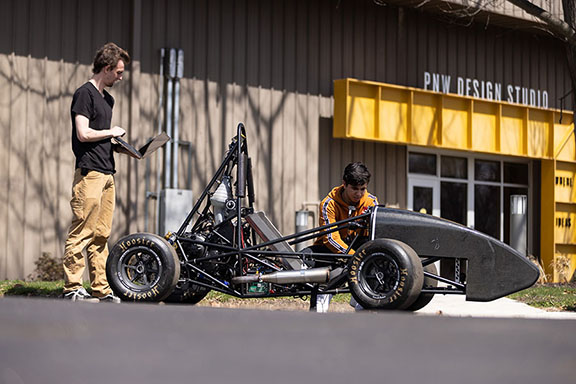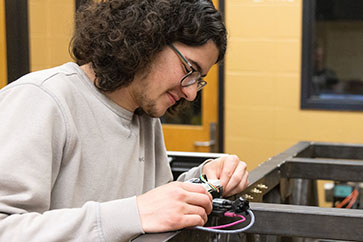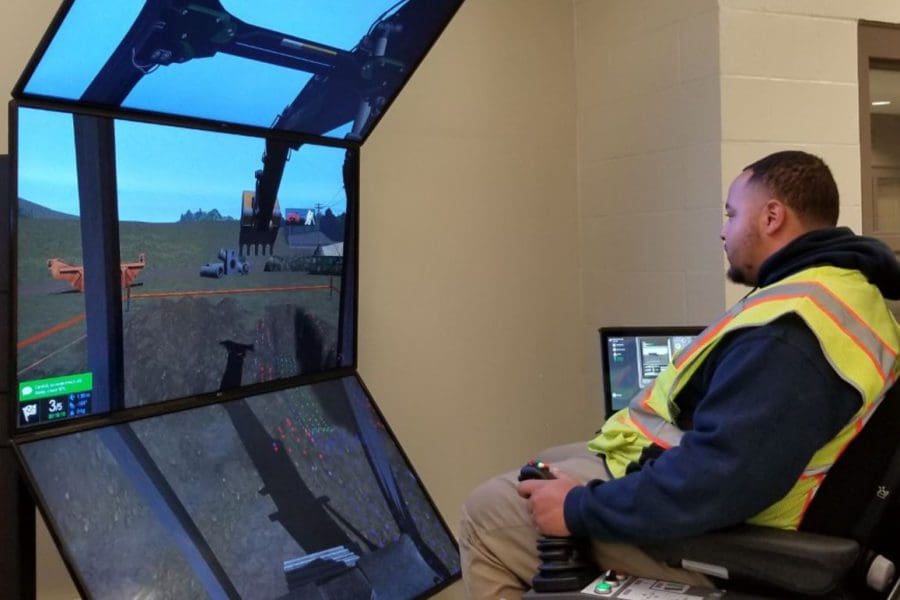
Bachelor's Degree in Civil Engineering
Bachelor of Science in Civil Engineering
Request Information
Civil Engineering Degree Program Overview
Everywhere you go, look around and you’ll see the work of civil engineers. We design, build, and maintain the foundations and infrastructure for our world — from interstate highways, suspension bridges, high-rise buildings and energy systems to seaports, airports and community centers.
Purdue University Northwest’s Bachelor of Science in Civil Engineering degree program is designed to prepare students for a career in a constantly changing field and provides a basis for lifelong learning.
Department of Mechanical and Civil Engineering
As a Civil Engineering major, you’ll enjoy meaningful interactions with faculty in small classes as part of an ABET-accredited program. You have the option to earn both a baccalaureate and a master’s engineering degree within five years.
Civil Engineering Degree Program Highlights
Rigorous curriculum, experiential learning and small classes are just the beginning. We also maintain robust connections with the industries in our region, which gives you an edge in the marketplace.
You’ll have the opportunity to enter design competitions and complete a senior project that tackles real-world problems.


Civil Engineering Degree Program Outcomes
The Civil Engineering program at PNW is built to provide:
- Engineering competence: Graduate as a competent and engaged professional in the field
- Continuous learning: Continue professional development long after graduation
- Professional skills: Learn teamwork and leadership skills that you need to succeed in a highly competitive environment
- Societal awareness: Recognize the societal, ethical and global impacts of your work
Civil Engineering Degree Program Career Paths
Civil engineers work in project management, field works, consulting, research and computer aided design. According to the U.S. Bureau of Labor Statistics, the median annual wage for civil engineers was $89,940 in May 2022.
Civil Engineering Degree Program Beyond the Classroom
We know that learning happens everywhere, so we provide a number of ways to supplement your studies, including:
- American Society of Civil Engineers (ASCE)
- Steel Bridge
- Concrete Canoe
Civil Engineering Degree Program Employers
Our alumni work with some of the most innovative organizations across the region and around the world, including:
- ArcelorMittal Steel
- Caterpillar
- INDOT
- NIPSCO
- Rieth-Riley
Civil Engineering Degree Program Scholarships
Funding opportunities available to Civil Engineering students include:
- BP Scholarship
- College of Engineering, Mathematics and Science Scholarship
- Hunter Family Engineering Scholarship
Civil Engineering Degree Program Accreditation
Purdue University Northwest’s Bachelor of Science program in Civil Engineering is accredited by the Engineering Accreditation Commission of ABET, https://www.abet.org, under the General Criteria and the Civil and Similarly Named Engineering Programs Criteria.
Civil Engineering Degree Program Licensure
As an ABET-accredited engineering program, PNW’s program for the Bachelor of Science in Civil Engineering at the School of Engineering fulfills the educational requirements for PE licensure in Indiana and all states of the US.
Meet the Faculty

Earn a Bachelor's Degree in Civil Engineering at PNW
Purdue University Northwest’s civil engineering degree program provides you with a broad education in the fundamentals of Civil Engineering.
To see how a Bachelor’s Degree in Civil Engineering from PNW opens doors, from government agencies to construction firms, take the next step today!











